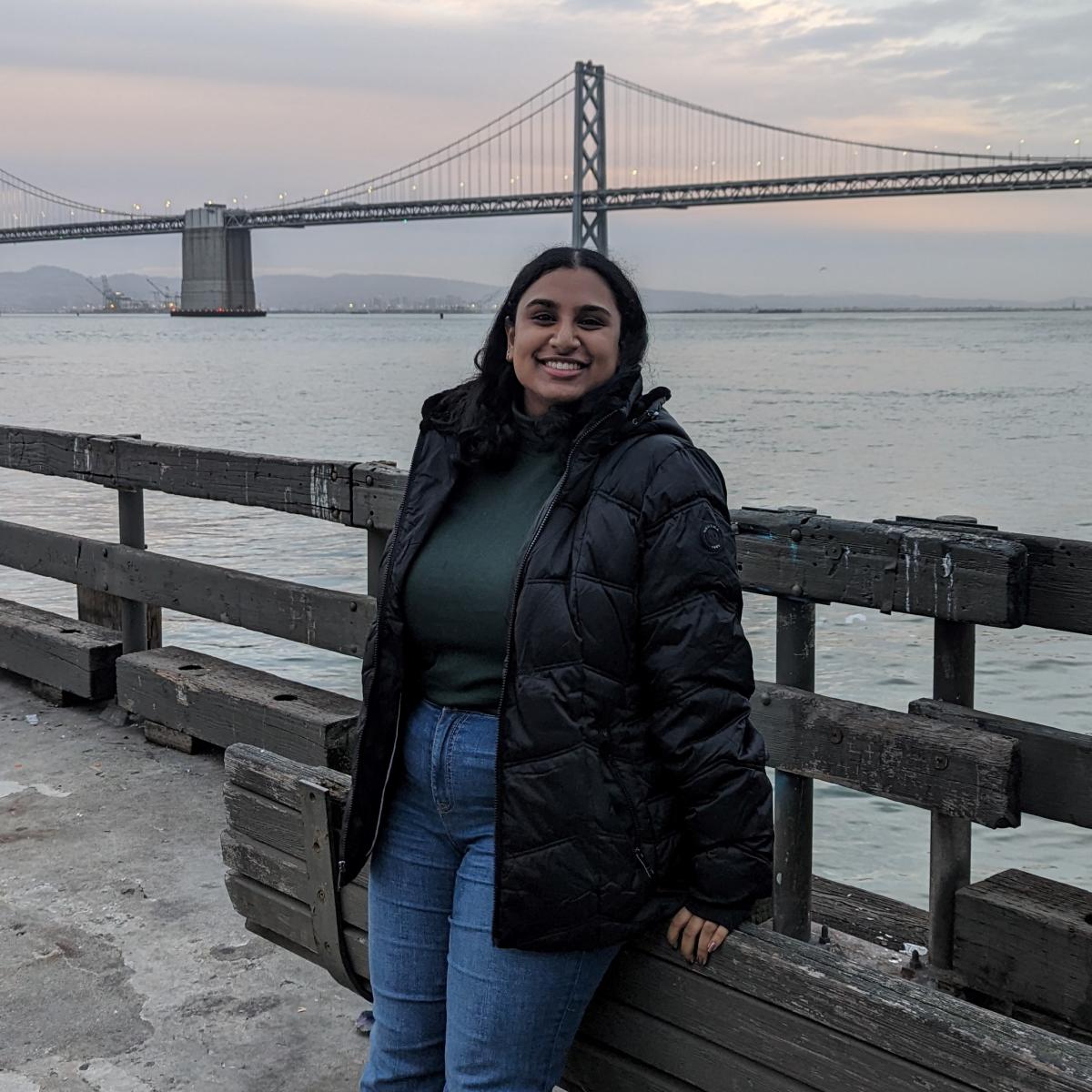Name: Mahashweta Bose
Year of Study: Senior
Majors: Biochemistry, Microbiology
Hometown: Bay Area, California
Please tell us a little bit about yourself.
I’m currently a senior majoring in Biochemistry and Microbiology. I’m from California, specifically the Bay Area. I chose to come to UW for the undergraduate research opportunities and am now working in the Giacani Lab studying Syphilis! I’ve always wanted to work in the field of medicine and due to the COVID-19 Pandemic I decided I wanted to work specifically in infectious disease.
Why did you choose to pursue global health courses/a minor in Global Health?
I decided to pursue a global health minor in order to expand my view on medicine and health. I felt that it was important to not only learn about how medical interventions came to be but to also understand how they are implemented within populations. I also wanted to better understand the inequalities and disparities within healthcare across the world so that in my future work I could better address biases and contribute towards health equity.
How does the minor complement your core major studies?
My core major studies tend to operate on a very atomic or micro scale and therefore often feels removed from the human aspect. By taking global health classes I am able to see the end goal of the experiments and reconnect the fundamental reasons for why we are learning what we are. The minor helped fill in the gap between treatment and lifestyle and taught me how there are so many factors beyond the treatments we see in hospitals that affect people’s well being.
What has been most valuable about your Global Health coursework/learning thus far?
The interdisciplinary nature of the minor has challenged me to learn subjects beyond my comfort and has expanded my knowledge on the world outside of the U.S. For example I was able to take classes on the history of health in the Latin Americas as well as the Middle East. I’ve been able to compare and contrast health systems between regions and understand the benefits and downsides. Something that has also been very helpful is the opportunity of learning from experts in the fields. The core classes of the minor had rotating professors who were always passionate about what they were teaching.
What are your professional goals?
Eventually I would like to pursue an MD-PhD and work in infectious disease. I want to be able to conduct clinical research so that I can both treat patients but also keep a hand in the development aspect of medicine. After I graduate I plan on taking a gap year and working in research until I’m ready to apply.
Please share your recommendation for prospective and/or current undergraduate students on ways in which they may maximize their experience in Global Health.
The minor definitely gives back the same amount you put into it! My advice would be to be proactive! Attend events the department is holding or reach out to your professors who are a wealth of information and experts in their fields! Personally I was able to get research opportunities through the department and attend one of the events they held during online school. Also don’t be afraid of exploring more global health classes outside of the required ones. The minor has a lot of flexibility so you can really choose classes that you are personally interested in!
